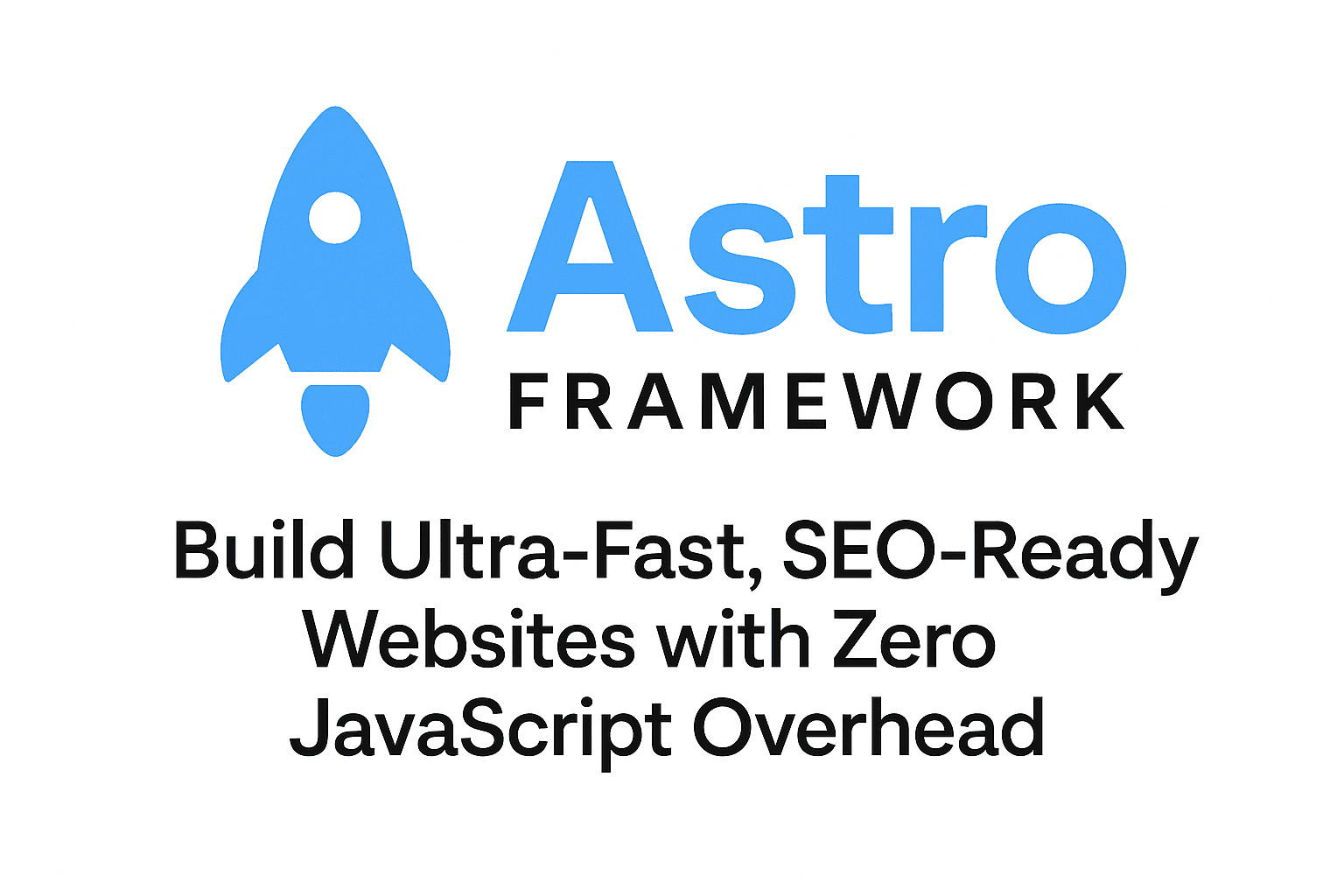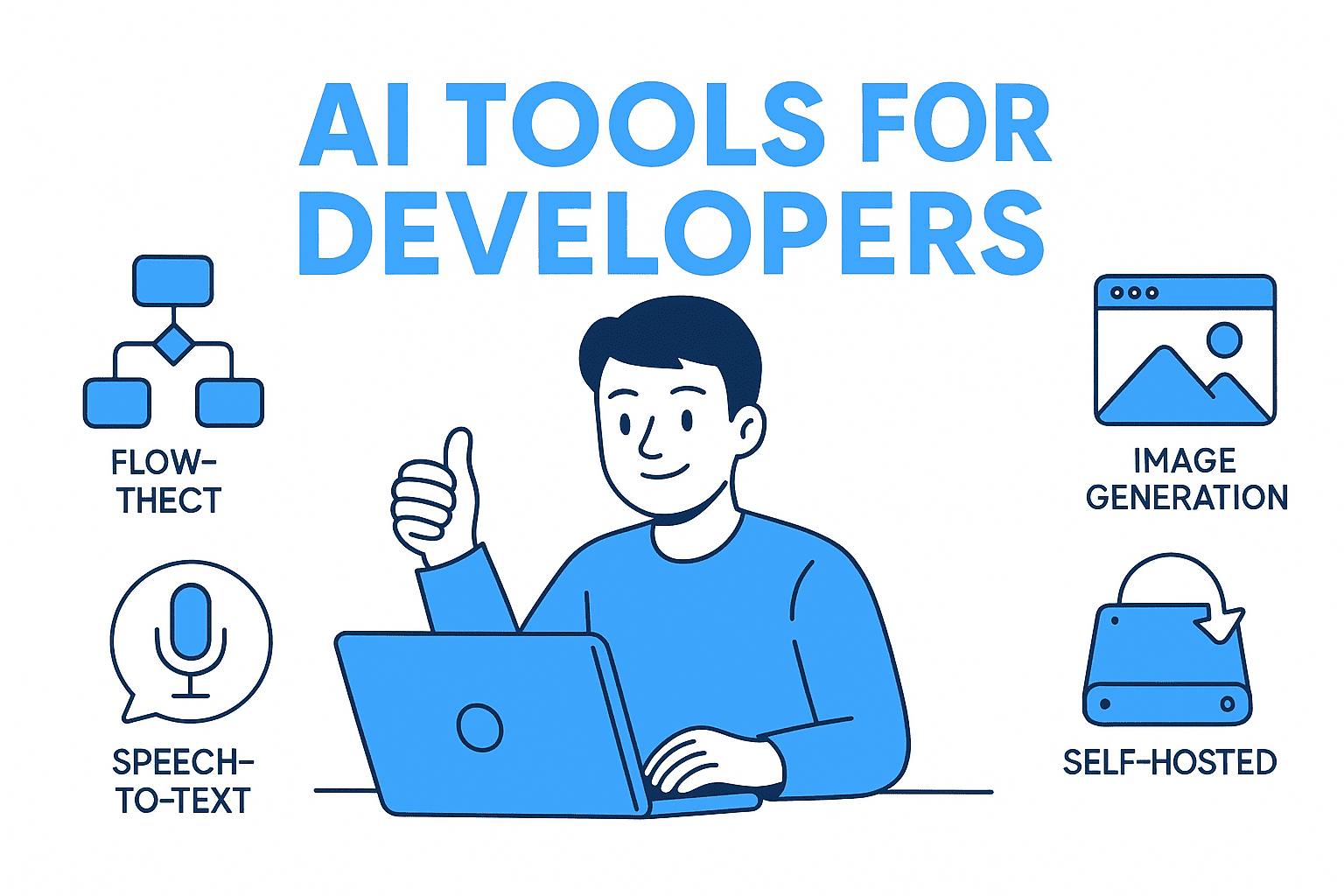The web development landscape is constantly evolving, and modern developers face a critical challenge: building websites that are fast, scalable, and content-rich, while still being search-engine friendly. Enter Astro — a cutting-edge framework designed to simplify building high-performance websites with less JavaScript and maximum flexibility.
In this article, we’ll break down what Astro is, why it matters, its key features, and how it compares to other frameworks, while ensuring the content is SEO-friendly, AI LLM-ready, and optimized for audience intent (AIO).
What is Astro?
Astro is a modern, static-first web framework that helps developers create ultra-fast websites by shipping minimal JavaScript to the browser. Unlike traditional frameworks that bundle everything into heavy client-side code, Astro introduces an innovative approach called “Islands Architecture.”
With Islands Architecture, interactive components (like a search bar or a carousel) are isolated islands of interactivity on an otherwise static page. This allows Astro sites to load fast, rank better on search engines, and provide an optimal user experience.
In short: Astro = Less JavaScript + More Speed + Better SEO.
Why Astro Stands Out
- Performance-First Design
- Ships almost zero JavaScript by default.
- Focuses on static rendering with client-side hydration only where needed.
- Helps websites score 90+ consistently on Google Lighthouse.
- SEO-Ready Out of the Box
- Clean HTML rendering improves crawlability.
- Built-in meta tag support, sitemaps, and SSR (Server-Side Rendering) make it easy to optimize.
- Perfect for content-driven websites like blogs, documentation, and landing pages.
- Framework Agnostic
- Supports React, Vue, Svelte, Preact, and even SolidJS — all in the same project.
- Gives developers flexibility without forcing a single ecosystem.
- Markdown & MDX Friendly
- Native support for Markdown/MDX makes it great for blogs and documentation.
- Easy content integration with a developer-friendly authoring workflow.
- Optimized for Modern Web Needs
- Integrated image optimization, CSS scoping, and partial hydration.
- First-class support for TypeScript.
- Compatible with popular CMSs and headless content APIs.
Astro vs Other Frameworks
| Feature | Astro | Next.js | Gatsby | Nuxt.js |
|---|---|---|---|---|
| Default JavaScript | Almost 0 | High | Medium | Medium |
| SEO Performance | Excellent | Good | Good | Good |
| Multi-Framework Support | Yes | No | No | No |
| Markdown/MDX Integration | Native | Plugin-based | Plugin-based | Plugin-based |
| Ideal Use Case | Blogs, Docs, Marketing sites | Full-stack apps | Static sites with plugins | Vue-based SSR apps |
Astro shines when the primary goal is speed, SEO, and content delivery. If you’re building dashboards or heavy single-page apps, frameworks like Next.js or Nuxt might be more suitable.
Use Cases for Astro
- Blogs & Personal Sites – Lightning-fast and simple to manage.
- Content-Heavy Platforms – Documentation sites, knowledge bases, and wikis.
- Marketing & Landing Pages – Higher SEO rankings and faster conversions.
- E-Commerce Frontends – Paired with headless CMS or APIs for speed and flexibility.
Getting Started with Astro
1. Install Astro
npm create astro@latest
2. Choose a Template
Pick from blog, documentation, or minimal starter.
3. Add Integrations
Easily plug in React, Vue, or Tailwind CSS.
4. Build & Deploy
Deploy to Netlify, Vercel, Cloudflare, or your preferred hosting service.
Why Astro is AI & LLM-Ready
Search engines and AI models like ChatGPT or Gemini increasingly favor clean, structured, and semantically rich content. Astro naturally supports this by:
- Delivering clean HTML structure for AI parsing.
- Supporting semantic SEO (schema, headings, metadata).
- Keeping sites fast and lightweight, ensuring AI models can extract content efficiently.
This means Astro-built sites aren’t just optimized for Google SEO, but also for AI-driven discovery and indexing, making them future-proof for the LLM era.
Final Thoughts
Astro is more than just another framework — it’s a paradigm shift in modern web development. By prioritizing speed, flexibility, and SEO, it empowers developers to create websites that delight users, rank higher in search, and stay relevant in the AI-powered future of the web.
If your next project is content-focused and performance-critical, Astro might just be the perfect fit.
👉 Explore Astro here: https://astro.build
🤝 Need a Custom RSVP System or Dashboard?
I help businesses build tools that actually work — even on tight deadlines.
Whether you're planning an event, need internal tools, or want a custom dashboard for your team — I can help.
Reach out
📧 Email: safi.abdulkader@gmail.com | 💻 LinkedIn: @abdulkader-safi | 📱 Instagram: @abdulkader.safi | 🏢 DSRPT
Drop me a line, I’m always happy to collaborate! 🚀



